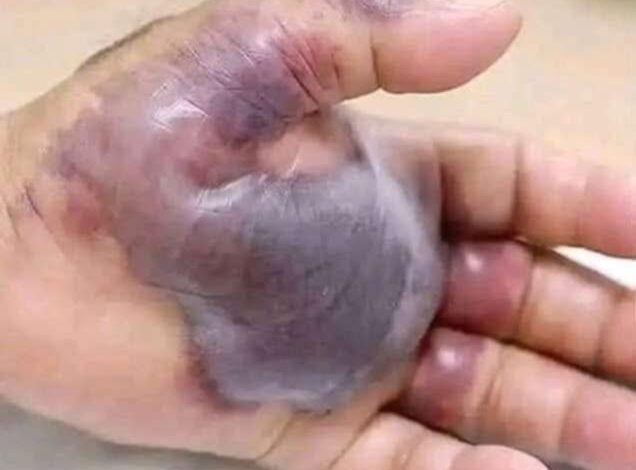Early Warning Signs: When Minor Injuries Become Medical Emergencies

Understanding Serious Skin Infections and When to Seek Help
Medical professionals emphasize the importance of recognizing early warning signs of serious skin infections. What may begin as a minor insect bite or small wound can sometimes develop into a significant medical condition requiring immediate attention.
Key Warning Signs to Watch For:
Immediate medical consultation is recommended when you notice:
- Rapid swelling around a bite or wound site
- Intense, increasing pain that seems disproportionate to the injury
- Skin discoloration, particularly darkening or unusual color changes
- Red streaking extending from the affected area
- Fever accompanying local symptoms
Understanding Necrotizing Fasciitis
Healthcare providers recognize necrotizing fasciitis as a rare but serious bacterial infection that affects the tissue beneath the skin. This condition, sometimes called flesh-eating disease, can progress rapidly and requires prompt medical intervention.
Risk factors include:
- Compromised immune systems
- Diabetes and other chronic conditions
- Recent injuries or surgical procedures
- Certain medications that affect immunity
Prevention and Treatment Options
Wound care best practices:
- Clean all cuts and bites thoroughly with soap and water
- Apply antibiotic ointment to minor wounds
- Cover injuries with clean, dry bandages
- Monitor healing progress daily
When to visit emergency services:
Medical experts recommend seeking immediate care if symptoms worsen rapidly or if you experience systemic signs like fever, chills, or fatigue alongside local infection symptoms.
Advanced Treatment Approaches
Modern medical treatment for severe skin infections may include:
- Intravenous antibiotics
- Surgical debridement when necessary
- Hyperbaric oxygen therapy in select cases
- Supportive care for systemic complications
Insurance and healthcare costs: Most major insurance plans cover emergency treatment for serious infections. Early intervention typically results in lower overall healthcare costs compared to delayed treatment.
Conclusion
Awareness of these warning signs can make a significant difference in health outcomes. While serious skin infections are relatively uncommon, recognizing symptoms early and seeking appropriate medical care remains the best approach to preventing complications.
This information is for educational purposes and should not replace professional medical advice. Always consult healthcare providers for specific medical concerns.